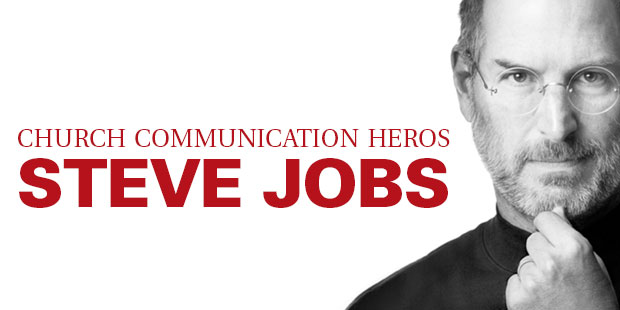
Church Communication Heros: Steve Jobs
Yes. I know what you’re thinking. How can Steve Jobs possibly be a church communications hero? As reported in the recent autobiography, Jobs was a Zen Buddhist and he was highly dysfunctional in the way he interacted with those around him. So why on earth would I choose him for being a church communications hero?
It’s simple really. I’m a firm believer that we can learn how to be better at what we do if we are willing to look outside the existing paradigms of the tiny church bubble.
Jobs understood what it meant to think differently, beyond the marketing slogan. He didn’t want to be just another carbon copy out there. Here are a few principles I’ve learned from Jobs that I think I can apply to what we do:
1. Vision: Jobs had a clear picture of what he wanted Apple to be.
It wasn’t to be like Microsoft. Or Dell. He had clarity right down to the brushed aluminum screws on his products. He wasn’t influenced by the biggest player in the market. In fact he was very vocal about what was wrong with Microsoft and what was right about Apple. Unfortunately, too many churches have a creative and communication vision that look, feel and sound the same. Your vision for your church’s communications should distinctly represent the values and voice of your church. They should not be a carbon copy of the big church up the road. Too often we settle for the mediocre and unremarkable rather than creating something that changes peoples’ lives. What’s your vision of what your church should look and sound like? What’s the compelling story you need to tell?
Read the rest of the story here.

Tags: Brand, Communication, Steve Fogg, Steve Jobs












